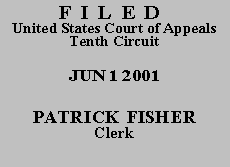

| UNITED STATES OF AMERICA,
Plaintiff-Appellee, v. HECTOR CAMACHO-JIMINEZ, also known as Hector J. Camacho, also known as Ignacio Camacho, also known as Frederico Camacho, Defendant-Appellant. |
|
Defendant bases his argument on Apprendi v. New Jersey, 530 U.S. 466 (2000), in which the Supreme Court held that facts used to enhance the penalty for a crime beyond the statutory minimum must be submitted to a jury and proved beyond a reasonable doubt. Defendant argues that because the indictment did not charge him with the prior conviction of an aggravated felony, and because he did not plead guilty to that fact, the sentencing court could not rely on the prior conviction to enhance his sentence in accordance with 8 U.S.C. § 1326(b)(2).
In Apprendi, however, the Court explicitly excepted from its rule cases in which the enhancement factor is a prior conviction. 530 U.S. at 487-90. The Court did so based on its previous decision in Almendarez-Torres v. United States, 523 U.S. 224, 235 (1998), in which it held that the existence of a prior conviction is merely a sentencing factor, not a separate element of the offense to which the full panoply of due process protections attach. Accordingly, the increased prison term set forth in 8 U.S.C. § 1326(b) may apply even when an indictment does not allege the prior conviction of an aggravated felony. Almendarez-Torres, 523 U.S. at 226-27, 235.
Although the Court expressed misgivings in Apprendi about whether it correctly decided Almendarez-Torres, the Court nonetheless refused to overrule its earlier decision. 530 U.S. at 489-90. This court, therefore, is "bound by [Almendarez-Torres] to hold that the fact of defendant's prior felony conviction is not an element of the offense with which he was charged by indictment, but is, instead, a sentencing factor." United States v. Martinez-Villalva, 232 F.3d 1329, 1332 (10th Cir. 2000); see also United States v. Dorris, 236 F.3d 582, 587 (10th Cir. 2000) (rejecting defendant's efforts to challenge the continuing validity of Almendarez-Torres), cert. denied, 121 S. Ct. 1635 (2001).
Defendant concedes that our decision in Martinez-Villalva requires us to reject his claim, but states that he is bringing this appeal to preserve the issue for Supreme Court review. He has done so. It remains our duty to decide his case under the rule announced in Almendarez-Torres. Accordingly, the judgment of the United States District Court for the District of Utah is AFFIRMED.
Entered for the Court
Circuit Judge
*. This order and judgment is not binding precedent, except under the doctrines of law of the case, res judicata, and collateral estoppel. The court generally disfavors the citation of orders and judgments; nevertheless, an order and judgment may be cited under the terms and conditions of 10th Cir. R. 36.3.
1. After examining the briefs and appellate record, this panel has determined unanimously to grant the parties' request for a decision on the briefs without oral argument. See Fed. R. App. P. 34(f); 10th Cir. R. 34.1(G). The case is therefore ordered submitted without oral argument.